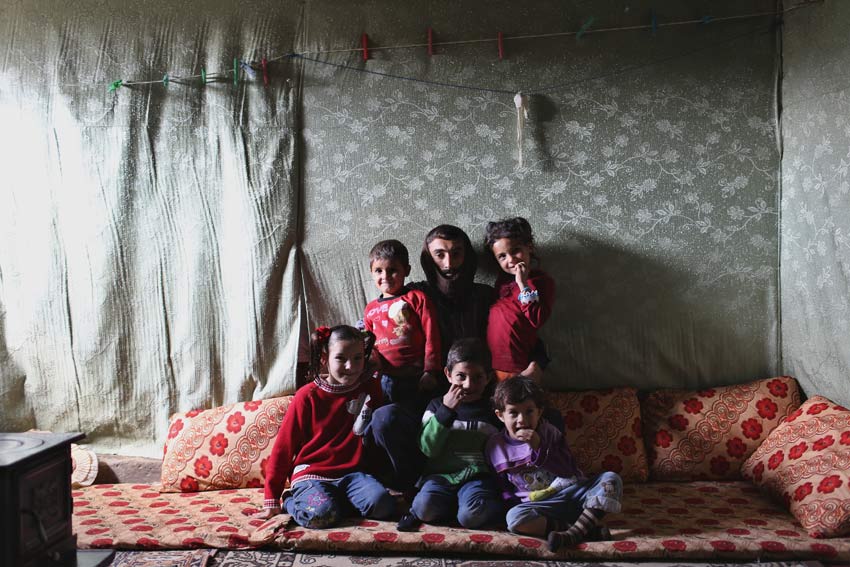More than a year ago, MM’s wife left their home outside Damascus to travel to a city in northwestern Syria. She has been missing ever since, leaving 41-year-old MM to care for their four children, ages 10 to four years old, on his own.
His life slowly began to unravel.
MM struggled to work and take care of the children, so the family inched deeper and deeper into poverty. Their home was barely habitable and all of the children stopped going to school. As financial pressures mounted, MM and his six-year-old son searched through garbage for food and recyclable materials.
He remarried and had another child. But in the first year of their marriage, his second wife left him, taking their new baby with her. MM started to abuse alcohol and have suicidal thoughts. At times, he imagined killing himself and his children so they could all escape what had become a seemingly never-ending war that destroyed the life they once had.
An International Medical Corps case manager visited MM at his home and, after seeing the conditions they were living in, referred him to one of the organization’s clinics. It was there that he met with one of International Medical Corps’ psychiatrists.
MM told the psychiatrist that he was having trouble sleeping and was constantly nervous. His mood was erratic and he often lashed out and beat his children. It was clear that MM was struggling with depression.
MM is far from alone in his condition, especially after more than five years of brutal, grinding civil war. Rates of mental health issues like depression often double—from roughly 10 to 20 percent—in times of crisis. This is why International Medical Corps integrates mental health care into its general community health services, so that people are cared for as a whole, even in the horrors of war.
The International Medical Corps psychiatrist and mental health case manager worked with MM to develop a care plan, which included medication as well as techniques for relaxation and ways to establish a healthy routine to foster his resilience and support network.
At the same time, the International Medical Corps case manager worked with MM to make sure his children were in a stable environment. They agreed to take the children to a SOS Children’s Village—a facility that cares for orphaned and vulnerable children—for three to four months so MM could focus on making a full recovery and to properly care for his children.
MM has been visiting International Medical Corps’ clinic every month and has gradually rebuilt his life. He is taking care of his hygiene and appearance and has found a daily routine. He found work repairing bicycles and has plans to return to the waste industry, which he did before his wife vanished more than a year ago. Overall, he says his mood has improved dramatically and he is better able to communicate and cope.
He visits his children often and is focusing on getting everything in order for them to return home.
**Initials were used to protect confidentiality.
